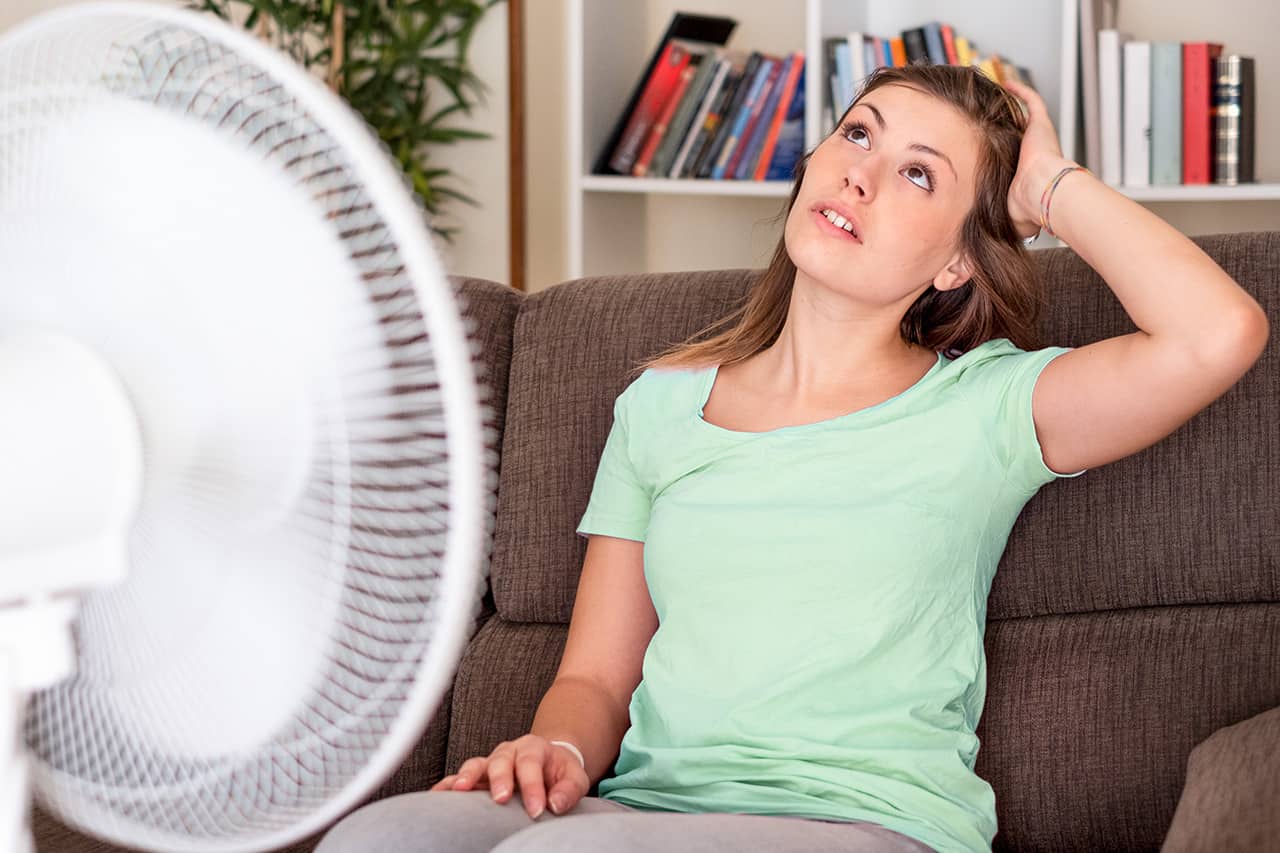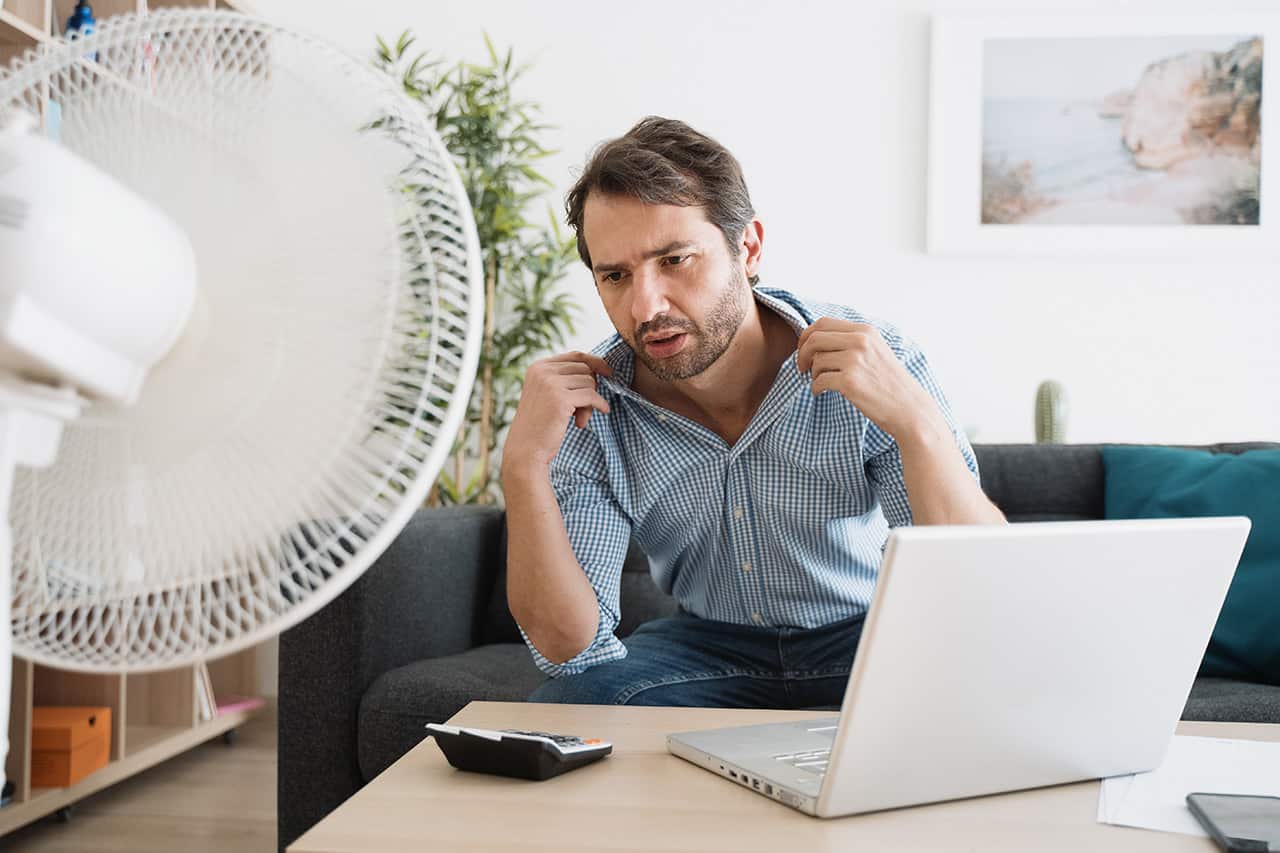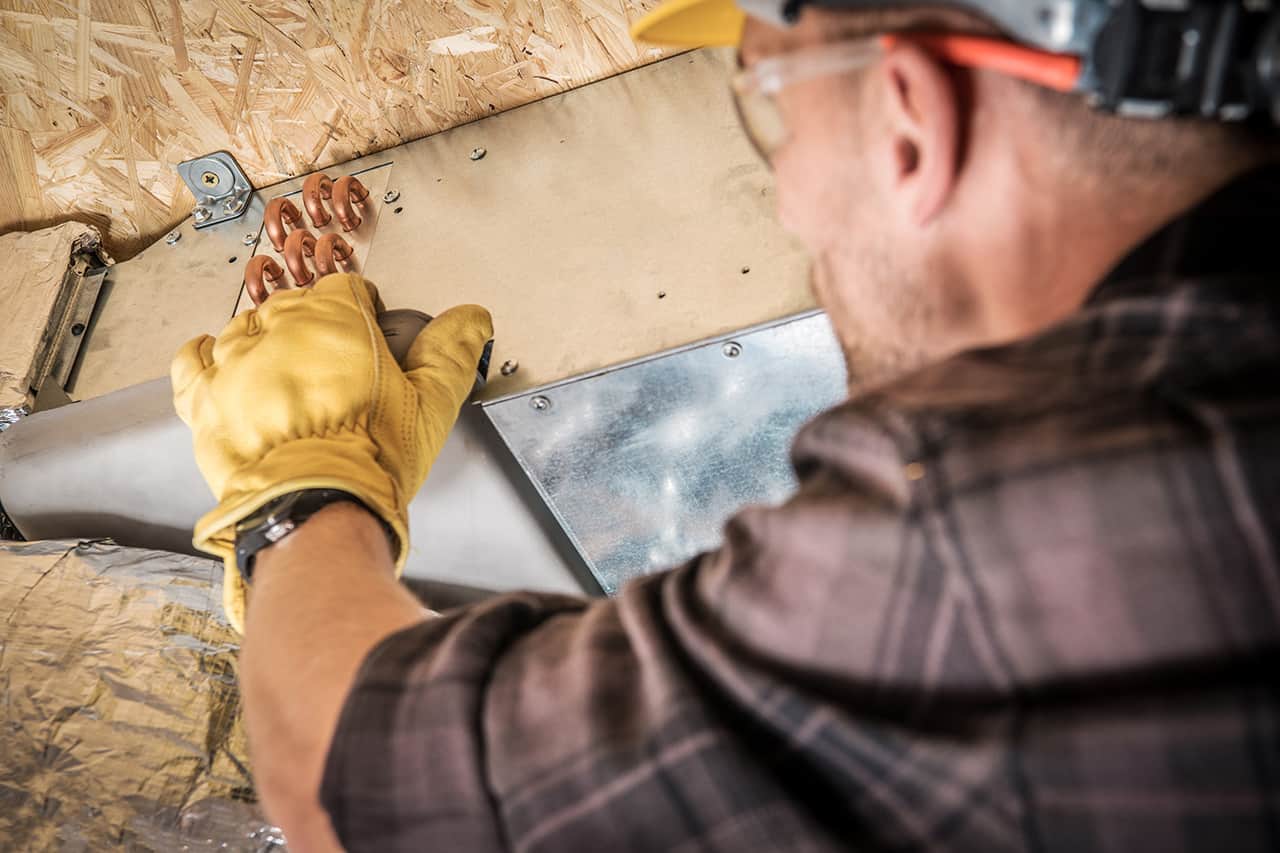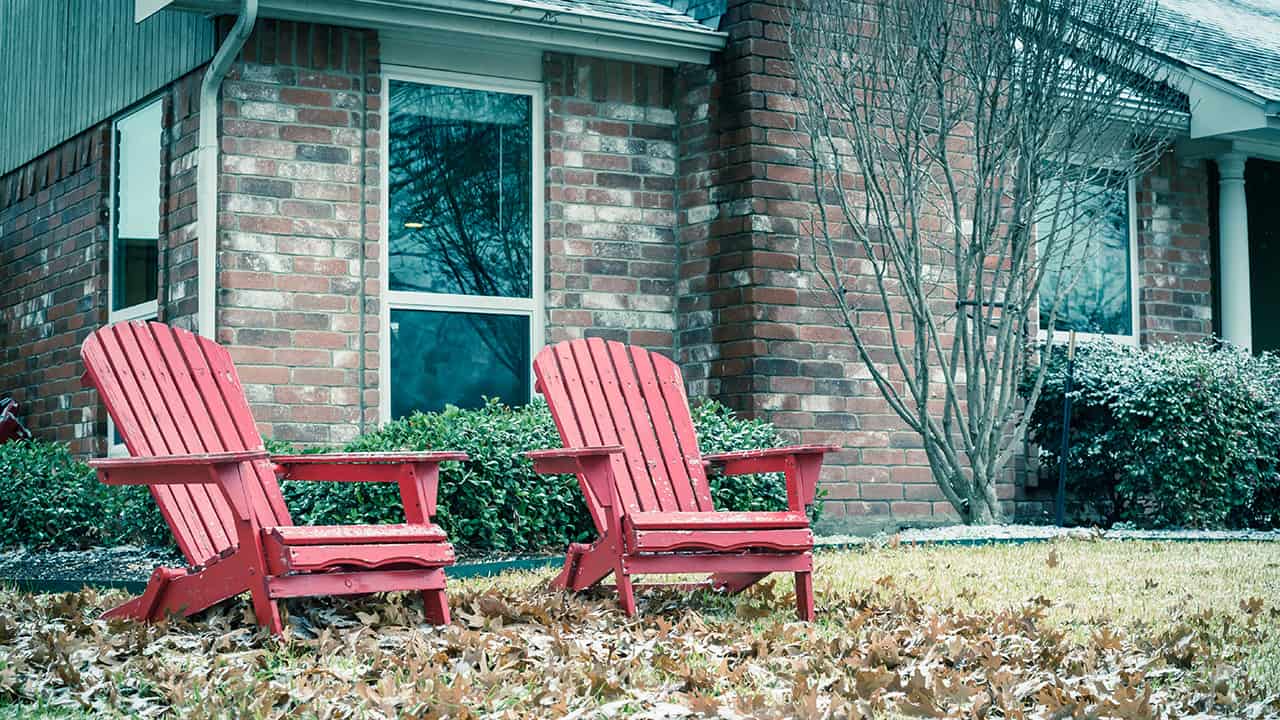
Imagine your air conditioner as a marathon runner who’s sprinting but not reaching the finish line; similarly, your AC is running, but your ac is not cooling the house. You’re faced with a perplexing situation that demands a systematic approach to troubleshooting.
From incorrect thermostat settings to blocked condenser units and potential refrigerant leaks, the reasons behind the ac not cooling are varied and require your attention. Pay attention to the significance of routine checks, such as replacing air filters and ensuring your AC’s size is adequate for your space.
As we unpack these issues, you’ll discover that understanding and addressing the root causes can restore your home to the cool sanctuary it should be, potentially saving you from a sweltering predicament.
Incorrect Thermostat Settings
Before diving into more complex issues, ensuring your ac not blowing cold air isn’t due to incorrect thermostat settings is crucial. Often, thermostat issues can be the root cause of warm indoor air despite the air conditioner is running. First, double-check that your thermostat is set to ‘cool’ mode and that the temperature is indeed set lower than the current room temperature. It’s a basic step, but how often it’s overlooked is astonishing.
Next, look into the thermostat programming. Modern thermostats can have complex programming options that might unintentionally override your cooling preferences. Ensure that no schedule or setting prevents the air conditioning system from kicking into cool mode when you need it most.
Lastly, the issue might stem from the need to calibrate your thermostat. Calibration ensures the thermostat accurately reads and reacts to your home’s temperature. An uncalibrated thermostat might misread the room temperature can be a reason your ac isn’t cooling. This misalignment can leave you uncomfortable and lead to wasted energy. Calibrating your thermostat can solve these discrepancies, ensuring your AC is blowing cold air when you need it to cool your house.
Air Filters Need Replacement
One often overlooked but critical aspect of maintaining your AC’s cooling efficiency involves regularly replacing its air filters, ideally every three months, to prevent airflow restriction and system strain. Dirty air filters significantly restrict air flow, hampering the system’s ability to cool the air effectively. This isn’t just about comfort; it’s also about the efficiency and longevity of your central air conditioning system.
Clogged air filters cause your ac to work harder, yet less effectively, to circulate cool air in your home. This inefficiency is one of the reasons why your air conditioner is not cooling. Still, it can cause your energy consumption to spike, resulting in higher utility bills. Neglecting to change your air filters can lead to more severe issues, such as frozen coils, potentially damaging the system and necessitating a costly ac repair.
To ensure optimal performance, make it a habit to check and replace your system’s air filter every three months. This simple maintenance task can prevent many problems, from air conditioner running but not cooling to possible system damage, ensuring your AC runs smoothly and efficiently. Remember, the key to a well-functioning central AC system isn’t just in its operation but in the care and maintenance it receives, starting with regular air filter replacement.
Blocked Condenser Unit Issues
Did you know that a blocked condenser unit can significantly impede your AC’s ability to cool your home effectively? The condenser unit, vital for expelling heat from your home, relies heavily on proper air flow to function efficiently. When debris, such as leaves, dirt, or vegetation, accumulates around your condenser unit, it restricts this crucial airflow. This obstruction not only reduces cooling efficiency but can also cause your system to overheat, resulting in your air conditioner not blowing cold air.
A blocked ac condenser unit may force your AC system to run continuously yet still not cooling your home. This relentless operation must keep your ac running to cool your space and increase your energy bills. Cleaning the condenser unit regularly is essential to avoid these issues. Removing debris that could block airflow ensures your system runs smoothly and maintains cooling effectiveness. Regular cleaning of the condenser unit is a simple yet impactful way to help keep the air flowing and enhance your AC’s performance and prevent unnecessary strain on the system.
Damages in the Heat Pump
Heat pump damage can significantly impair your AC’s cooling efficiency, often due to electrical issues, compressor malfunctions, or leaking refrigerant. When the heat pump, which plays a crucial role in transferring heat from the air inside your home to the outdoors, encounters these problems, it can’t perform efficiently. This results in your AC blowing warm air and not effectively cooling your space.
Compressor problems are particularly detrimental. The compressor is the heart of the heat pump, circulating refrigerant between the indoor air handler unit and outdoor units to facilitate heat exchange. If it’s malfunctioning, possibly due to electrical failures or mechanical wear and tear, the entire cooling process is compromised. You’ll notice your heat pump system isn’t cooling and is struggling to maintain a comfortable temperature.
Refrigerant leaks are another severe issue. Refrigerant is the substance that absorbs and releases heat during the cooling cycle. It reduces the amount of refrigerant available for heat exchange and poses environmental hazards. Without sufficient refrigerant, your AC unit or heat pump will run longer cycles, trying in vain to cool your home.
Regular maintenance is key to preventing these issues. A professional HVAC technician can identify early signs of damage, ensuring your heat pump operates optimally. Don’t wait until you’re sweating indoors; schedule regular check-ups to avoid unexpected breakdowns.
Frozen Evaporator Coil Problem
A frozen evaporator coil significantly hampers your AC’s ability to cool your home by not having enough air flow and diminishing the system’s efficiency. This issue often arises due to a need for regular maintenance, particularly failing to replace dirty air filters. When air filters are clogged, airflow through the evaporator coil is limited, causing the coil’s temperature to drop below freezing. Consequently, moisture in the air freezes upon contact with the coil, exacerbating the blockage and further reducing cooling efficiency.
While discussing the frozen evaporator without looking into potential refrigerant leaks in-depth, it’s crucial to understand that any irregularity in refrigerant levels can indirectly contribute to this problem. A decrease in refrigerant pressure lowers the coil’s temperature, making it prone to freezing. This complex issue requires professional diagnosis to pinpoint the exact cause and determine whether it’s linked to a refrigerant problem or other malfunctions like a faulty condenser fan.
To prevent a frozen evaporator coil, it’s essential to adhere to a regular maintenance schedule, including timely air filter replacements and monitoring of the system’s overall performance. Ignoring these steps can lead to decreased cooling efficiency and potentially costly repairs.
Potential Refrigerant Leak
Potential refrigerant leaks in your AC system can significantly impair its cooling efficiency due to low freon levels. These leaks often stem from damaged coils or faulty connections within your HVAC unit. Monitoring your system’s suction line is crucial, as it can indicate signs of low freon levels, hinting at potential leaks.
Freon leaks don’t just reduce the effectiveness of your AC; they can also pose serious health risks if not addressed promptly. The substance is hazardous, requiring immediate attention from a professional to ensure safe and proper handling.
You might notice your AC system is overcharged, leading to specific symptoms like frozen condenser coils, the constant running of the AC unit, and ice buildup. These are clear indicators of low freon levels due to leaks. Identifying and repairing these is vital to your central air conditioner to properly cooling the air and preventing further damage to the system.
Don’t hesitate to seek professional help if you suspect your AC may be suffering from lack of cool air. Handling freon requires specialized knowledge and equipment to ensure the safety and functionality of your AC system and get it back to cooling your space.
Inadequate Size of Air Conditioner
Selecting an air conditioner that’s too small for your space can cause it to struggle, preventing the ac to effectively lower the temperature and cooling my house, leading to increased wear and energy costs. When dealing with undersized AC units, you’re essentially tasking them with a job they’re not equipped to handle. These units often run constantly, yet they never quite achieve the level of cooling you’re after. This inadequate cooling capacity leaves you uncomfortable and spikes your energy bills due to the unit’s relentless operation.
The continuous strain on an undersized AC can accelerate its wear and tear. This means you could face premature failures and the need for replacements sooner than anticipated. It’s a cycle that’s as costly as it’s frustrating.
To avoid these pitfalls, consulting with an HVAC professional is crucial. They can assess your space and provide expert advice on the appropriate size unit needed for efficient cooling. This step is essential for your comfort, ensuring the longevity of your AC system and keeping energy costs in check.
Conclusion
In conclusion, if your AC’s running but not cooling, it’s likely due to incorrect thermostat settings, dirty air filters, a blocked condenser unit, heat pump damage, a frozen evaporator coil, refrigerant leaks, or simply because the AC is too small for your space are some of the reasons why an air conditioner keeps blowing air but not cooling.
Tackling these issues involves:
- Checking and adjusting settings.
- Cleaning or replacing filters.
- Ensuring the condenser’s unobstructed.
- Diagnosing system parts for damage or leaks.
- Assessing the unit’s size adequacy.
Regular maintenance prevents these common problems and ensures your AC functions efficiently.




